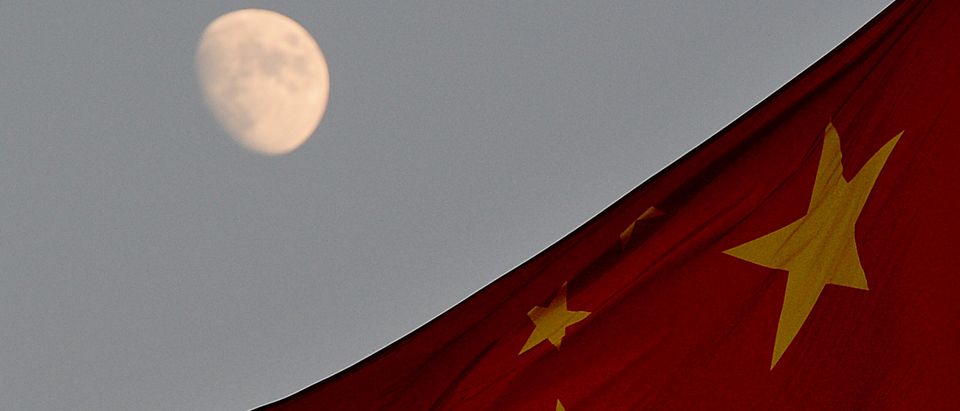After a flurry of mysteriously appearing and disappearing tweets announcing the event, China, at last, confirmed that it has successfully landed the Chang’e 4 in the Van Karman Crater located at the South Pole on the far side of the moon.
The landing is a remarkable achievement. It illustrates Beijing’s burning ambition to become the supreme superpower on Earth, in part by conquering space. India and a private group in Israel are planning their own moon landings early in 2019. NASA is due to sponsor commercial lunar landings as part of President Trump’s return to the moon initiative in the next year or so.
The prize of the new space race is the moon’s natural resources and control of the high frontier for all practical purposes.
China is conducting its drive to conquer space with a self-inflicted handicap. The Xi Jinping regime is increasing control of its citizens, instituting a dystopian social credit system designed to stamp out what it regards as anti-social behavior. Beijing has also instituted a policy that has driven China’s Uighur minority into “re-education camps,” a move somewhat reminiscent of Nazi Germany regarding Jews and other “undesirables.”
China will certainly sacrifice innovation and technological progress in its desire to exercise absolute domination over the Chinese. Successful space programs require the permission to question authority, to think outside the box, to not accept dictates from on high as gospel.
China can either be a totalitarian society or a space-faring one. It would be difficult to be both.
The United States, on the other hand, suffers from its own self-inflicted handicap, that being a form of ADD where space policy is concerned. Within the past 15 years, NASA has been instructed to go back to the moon and on to Mars, then bypass the moon and go to Mars, perhaps with a stop at an asteroid, then back to the moon and on to Mars again.
Successful space programs also require focus and a long-term commitment that lasts across several presidencies and congresses. Space races are not won by themselves. They take effort.
The danger of yet another course change may come as a result of the Democratic takeover of the House. John Culberson, a space exploration advocate who led the appropriations subcommittee that funded NASA, was defeated by Lizzie Fletcher, who ousted the former congressman with a pair of blatant anti-science commercials.
Rep. Bernice Johnson, who is due to chair the House Science, Space and Technology Committee, seems more interested in climate change than in returning to the moon. She will be replacing Lamar Smith, a climate change skeptic and a champion of space exploration.
In short, a small but more than zero chance has arisen that House Democrats will try to curtail or even cancel the third attempt to return to the moon in about 30 years. Opposition to human space flight runs deep in the Democratic Party, since the attempts by Democratic Wisconsin Sen. William Proxmire to cut funding for the Apollo program in the early 1960s.
More recently. Rep. Bob Traxler, D-Michigan, tried to cancel the space station project more than once. Democrats were responsible for killing both President George H. W. Bush’s Space Exploration Initiative and President George W. Bush’s Constellation program.
Of course, one cannot discount the intense hatred most Democrats feel for President Donald Trump, a loathing that goes beyond political differences or even personality conflicts, staggering into the realm of religious fervor. Just as many Democrats have flip-flopped on the border wall solely because it is Trump’s project, they may well decide that a return to the moon is anathema because the president proposed it.
NASA Administrator Jim Bridenstine, a former congressman who knows some of the new players of space policy in the new Congress, will have his work cut out for him. Bridenstine will need all of his political skills and diplomatic acumen to steer the back-to-the-moon program safety through the new reality in the House. America’s future status as a superpower and the course of the Sino-American struggle for dominance will depend on it.
No pressure.
Mark Whittington (@MarkWhittington) is the author of Why is It So Hard to Go Back to the Moon? and The Moon, Mars and Beyond. He also operates his own blog, Curmudgeons Corner.
The views and opinions expressed in this commentary are those of the author and do not reflect the official position of The Daily Caller.


